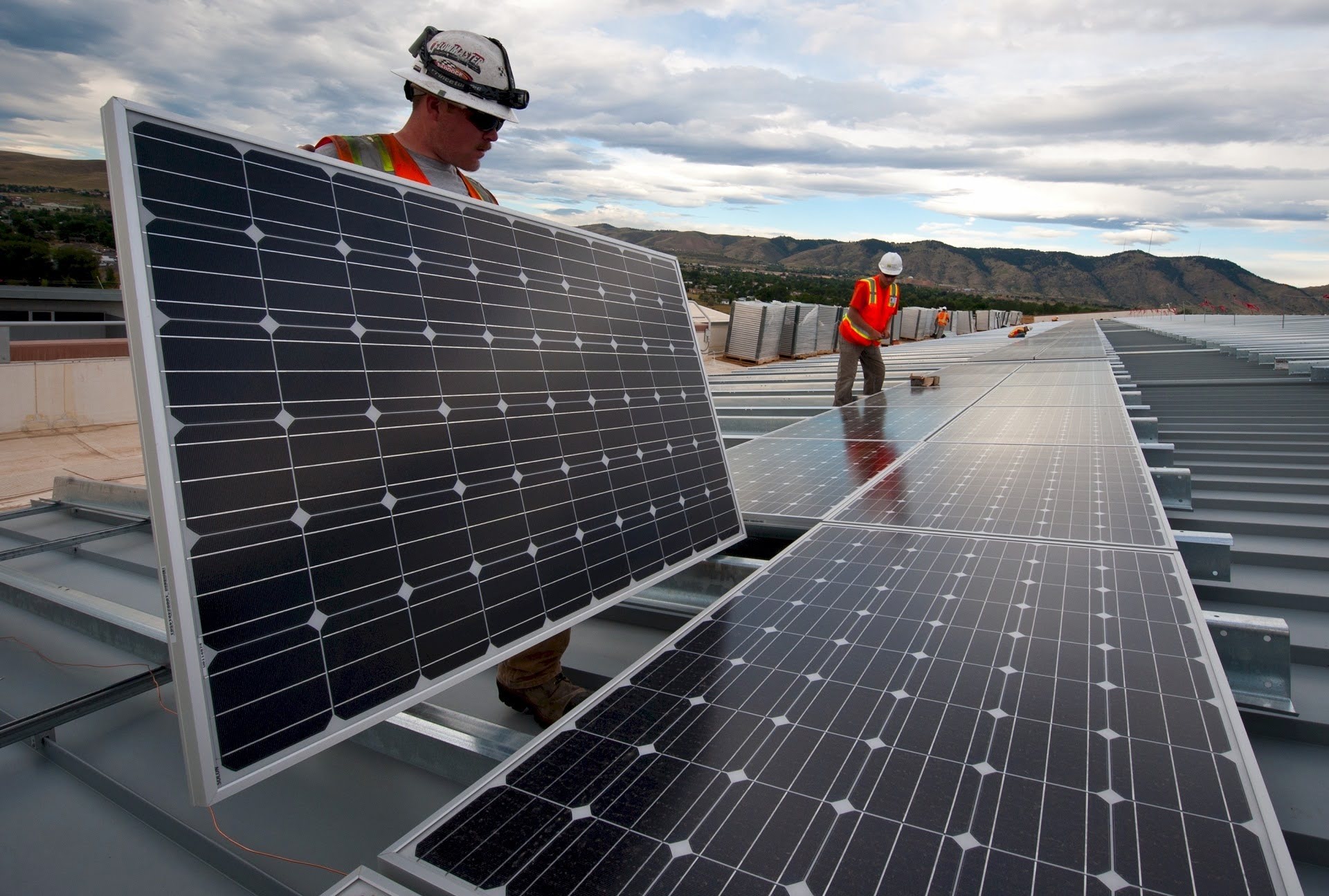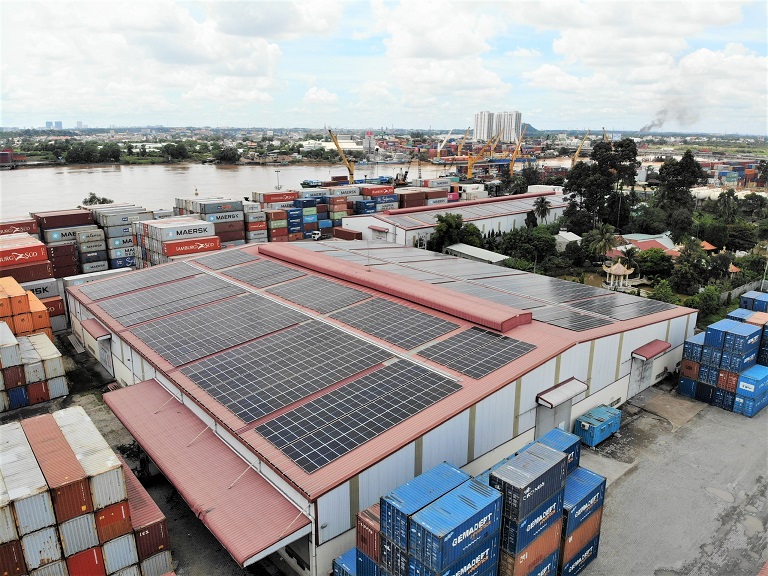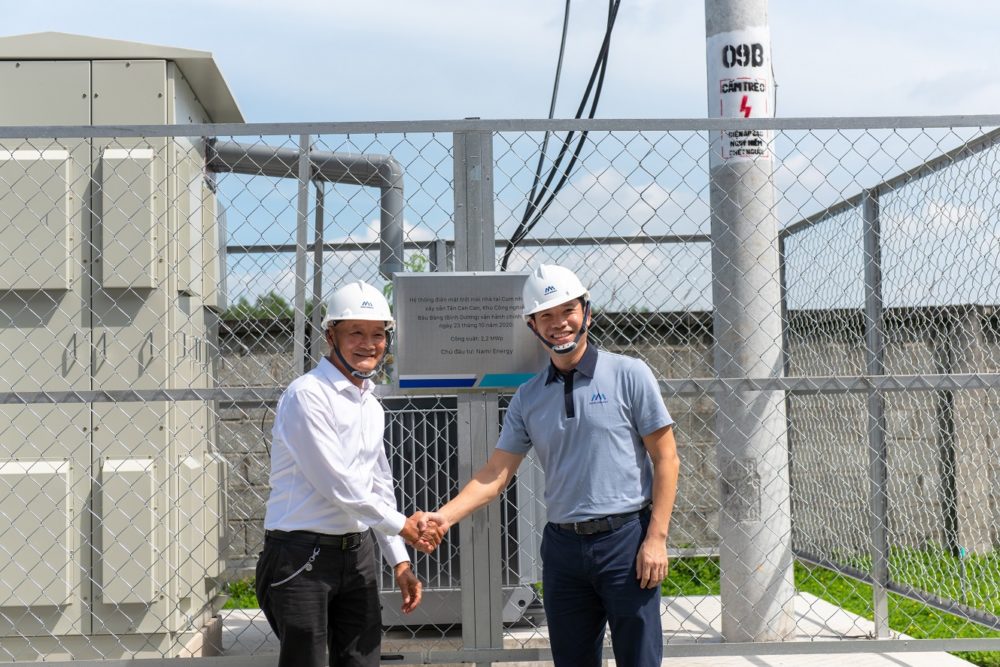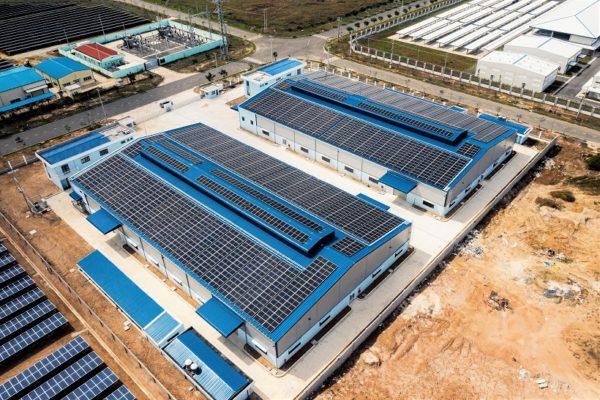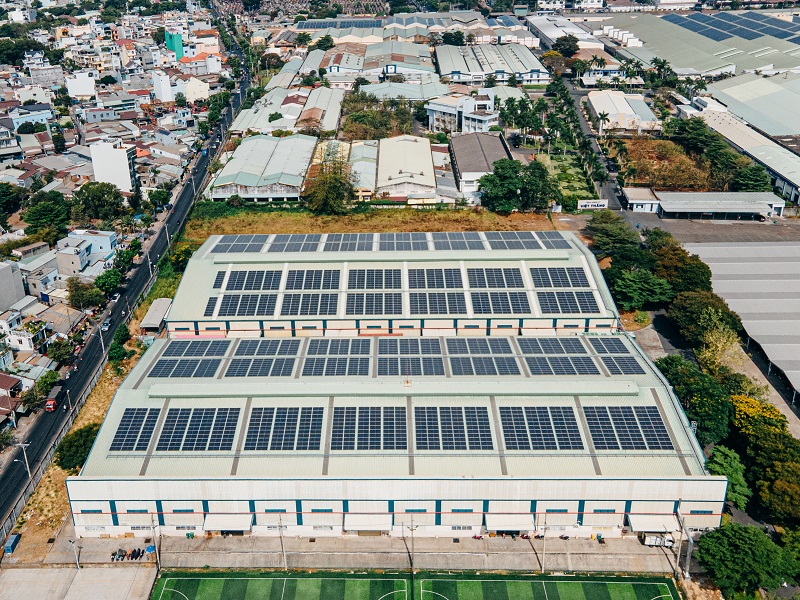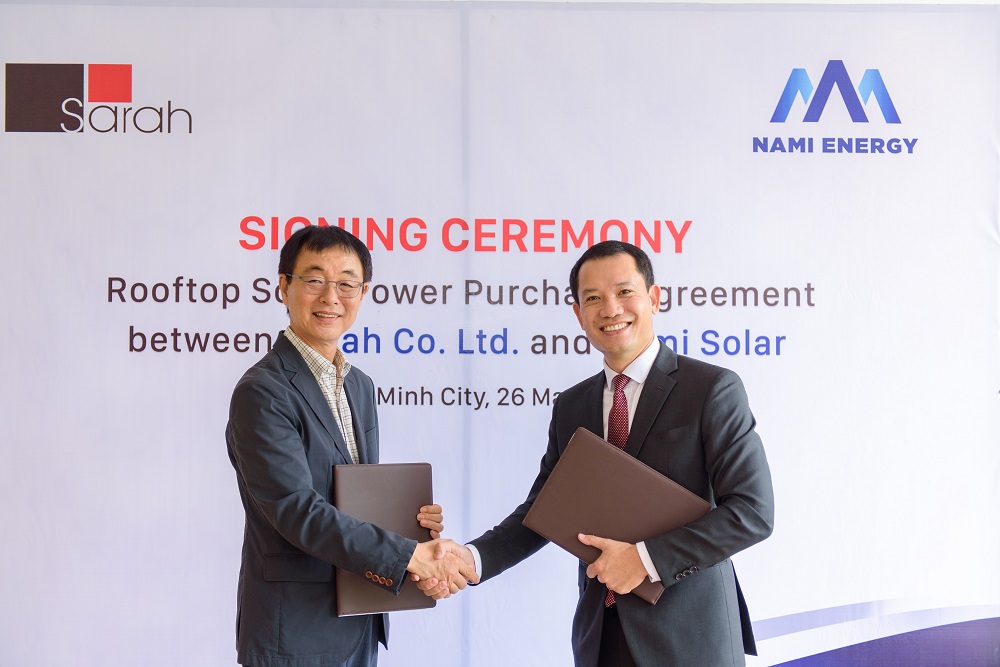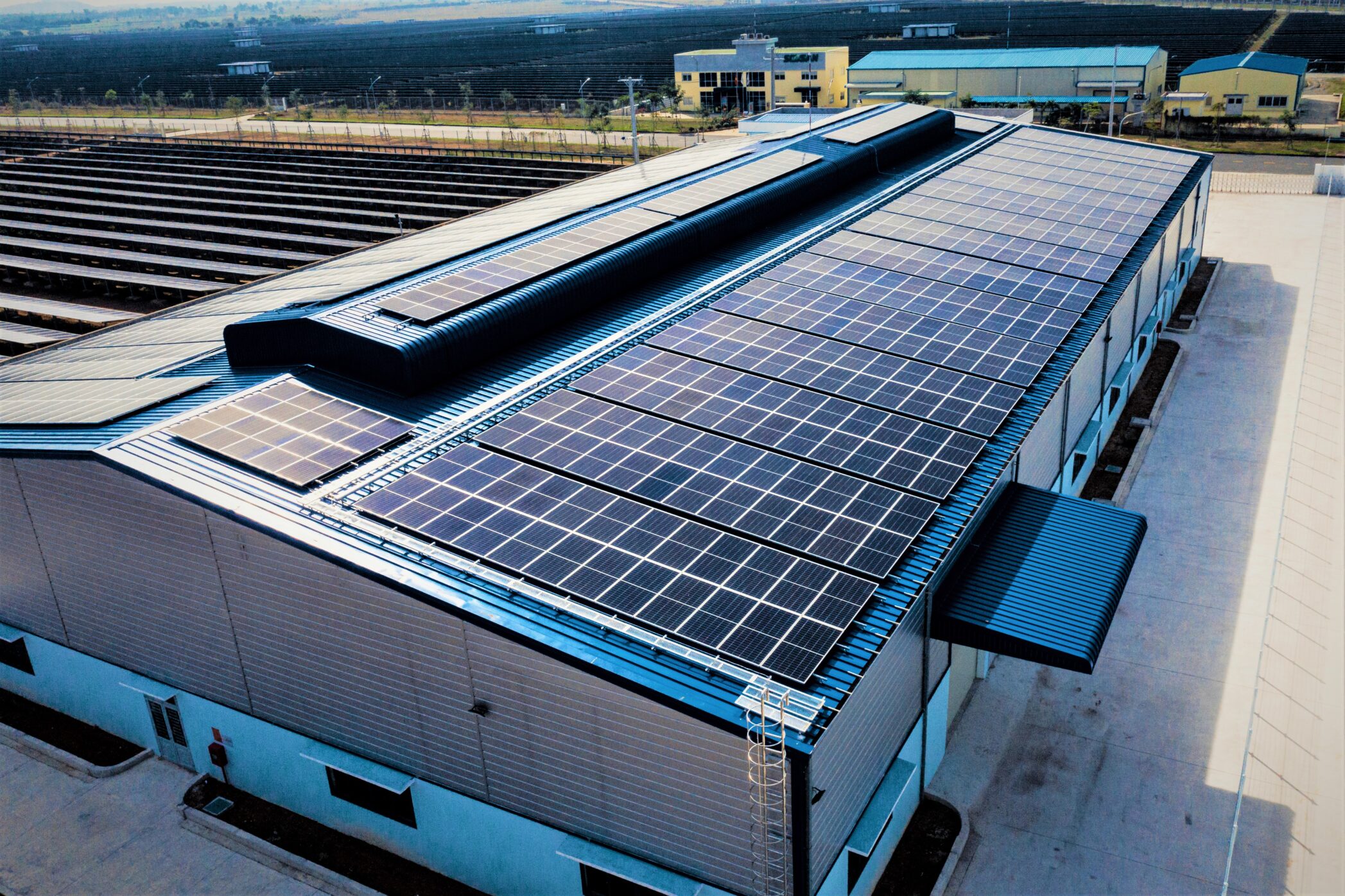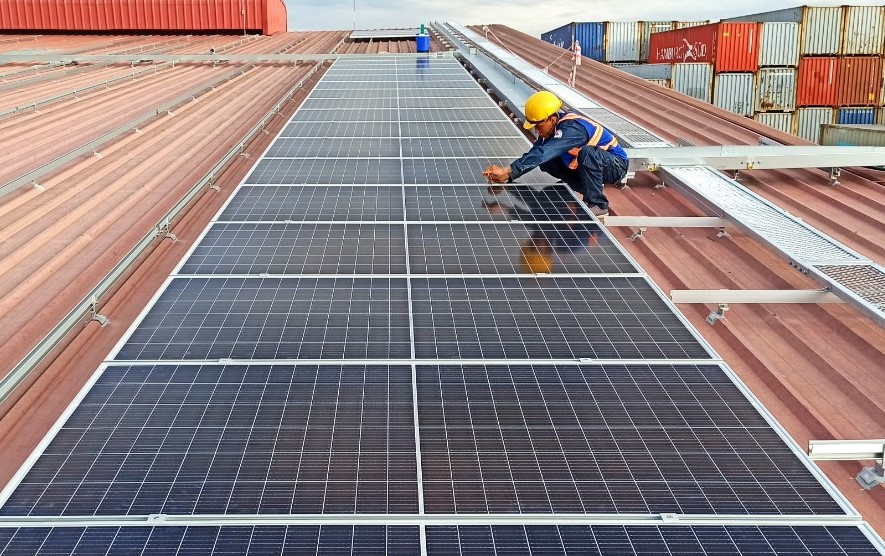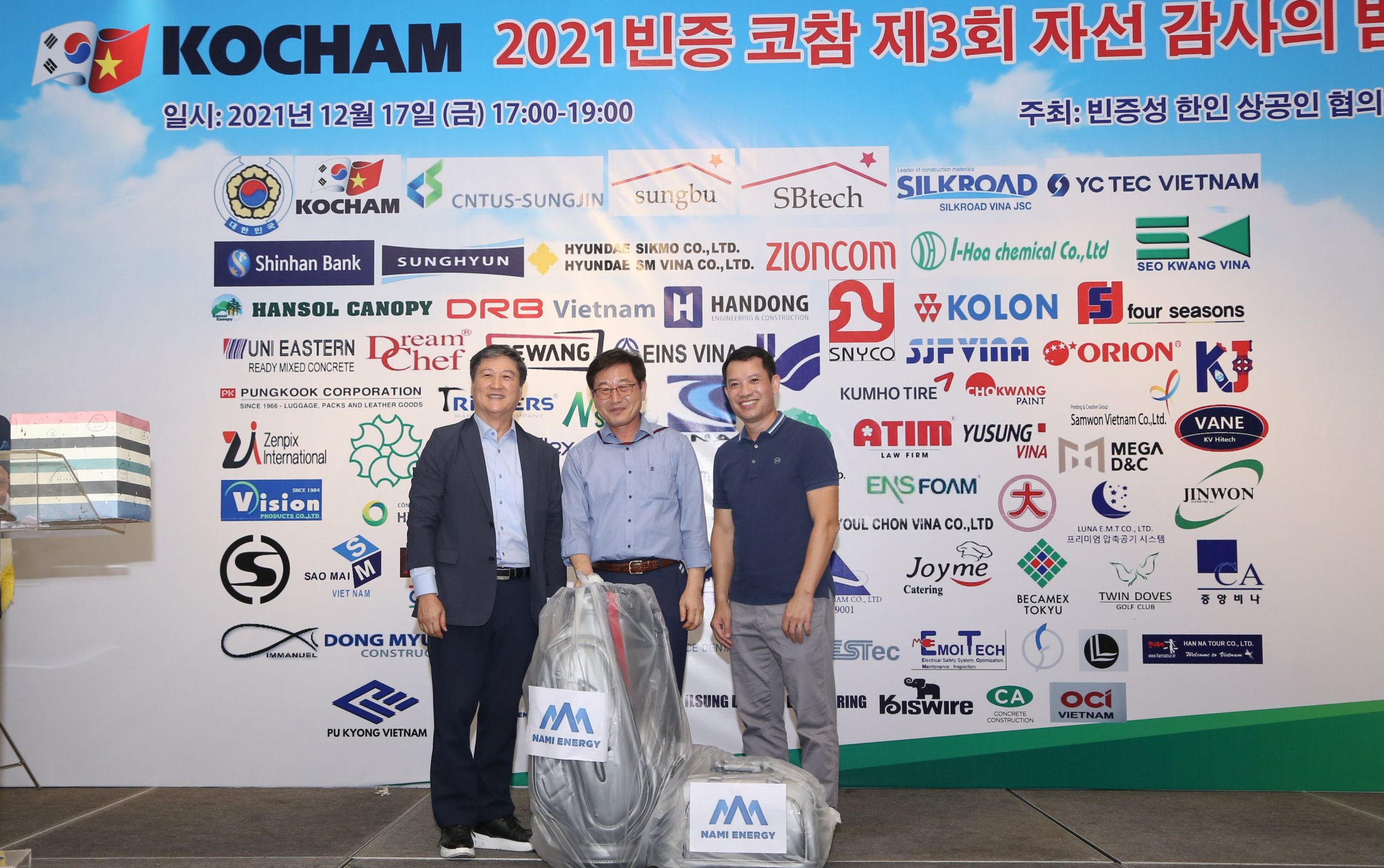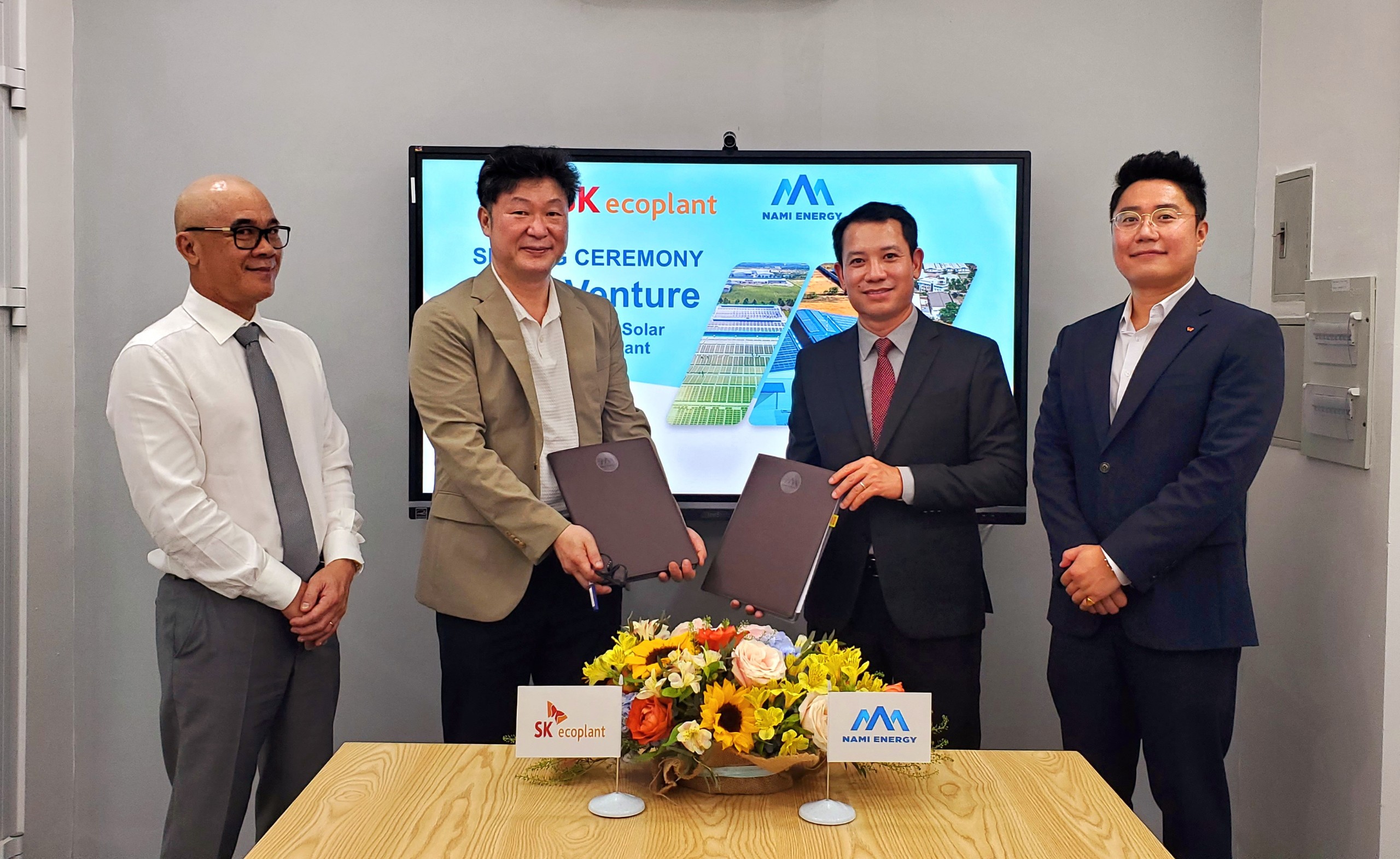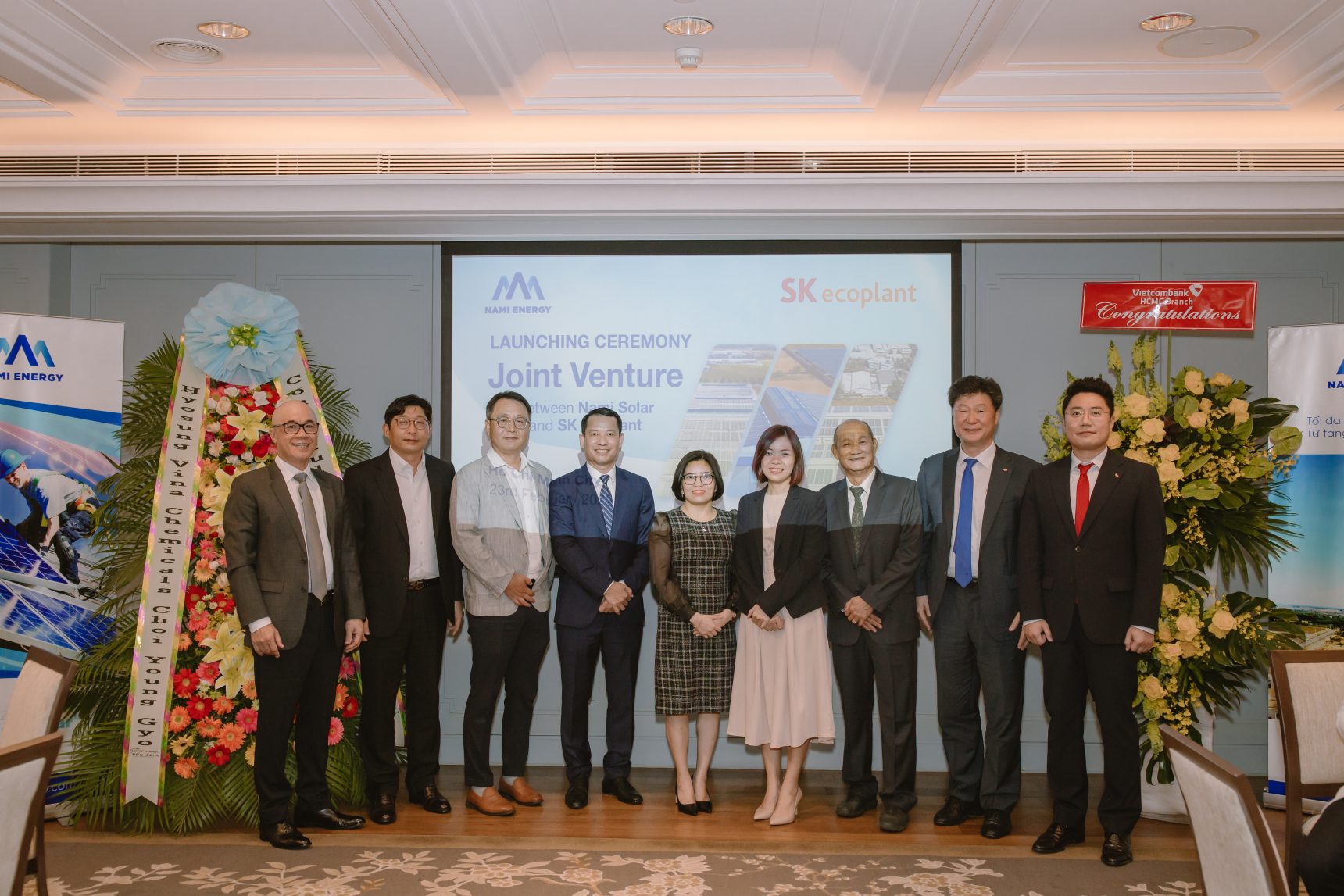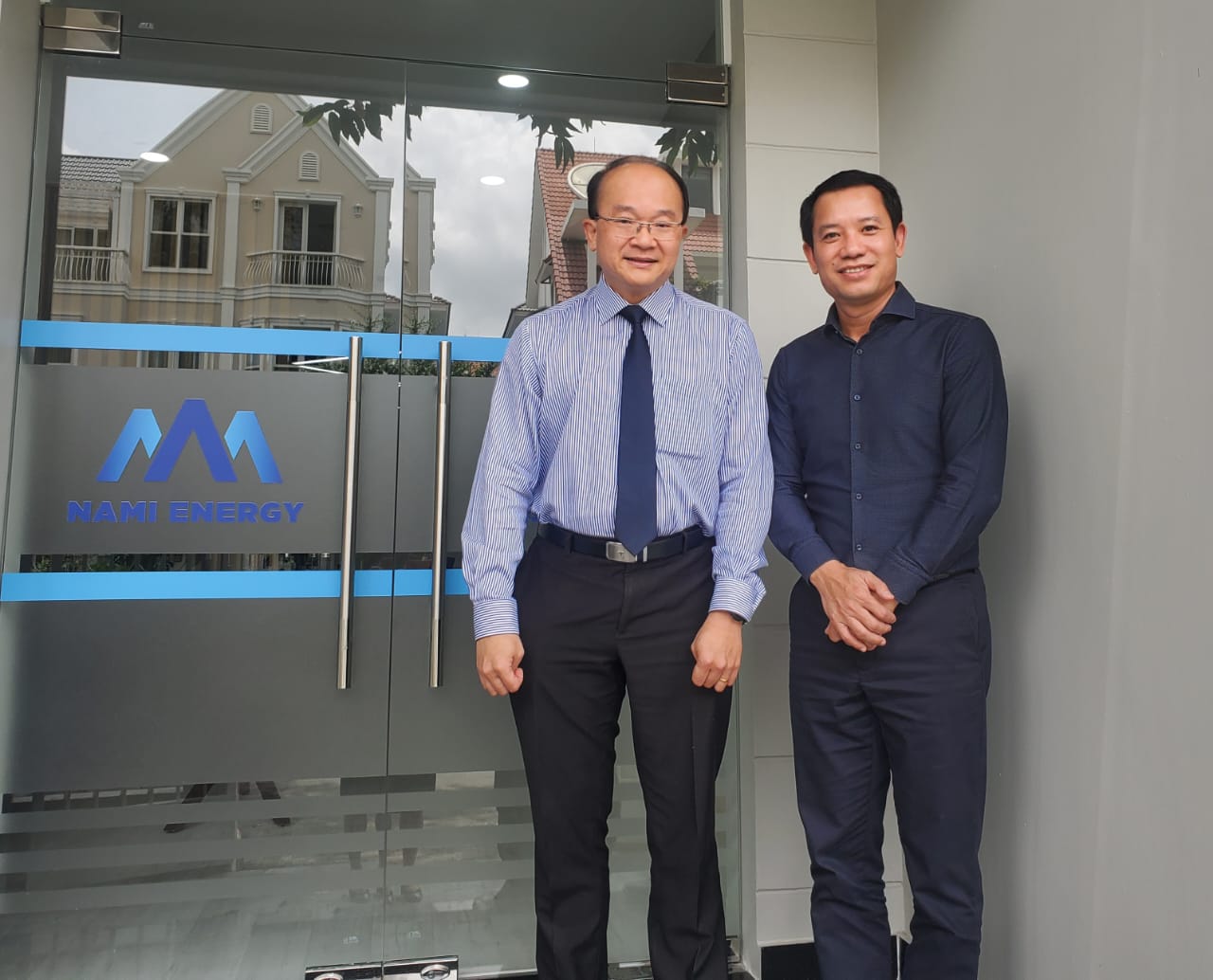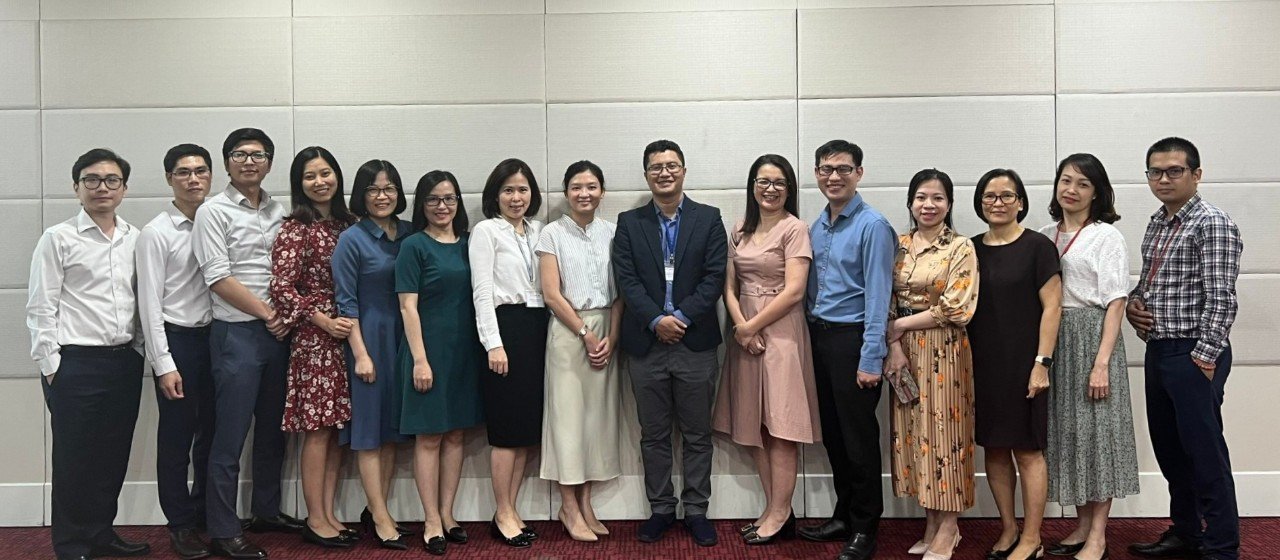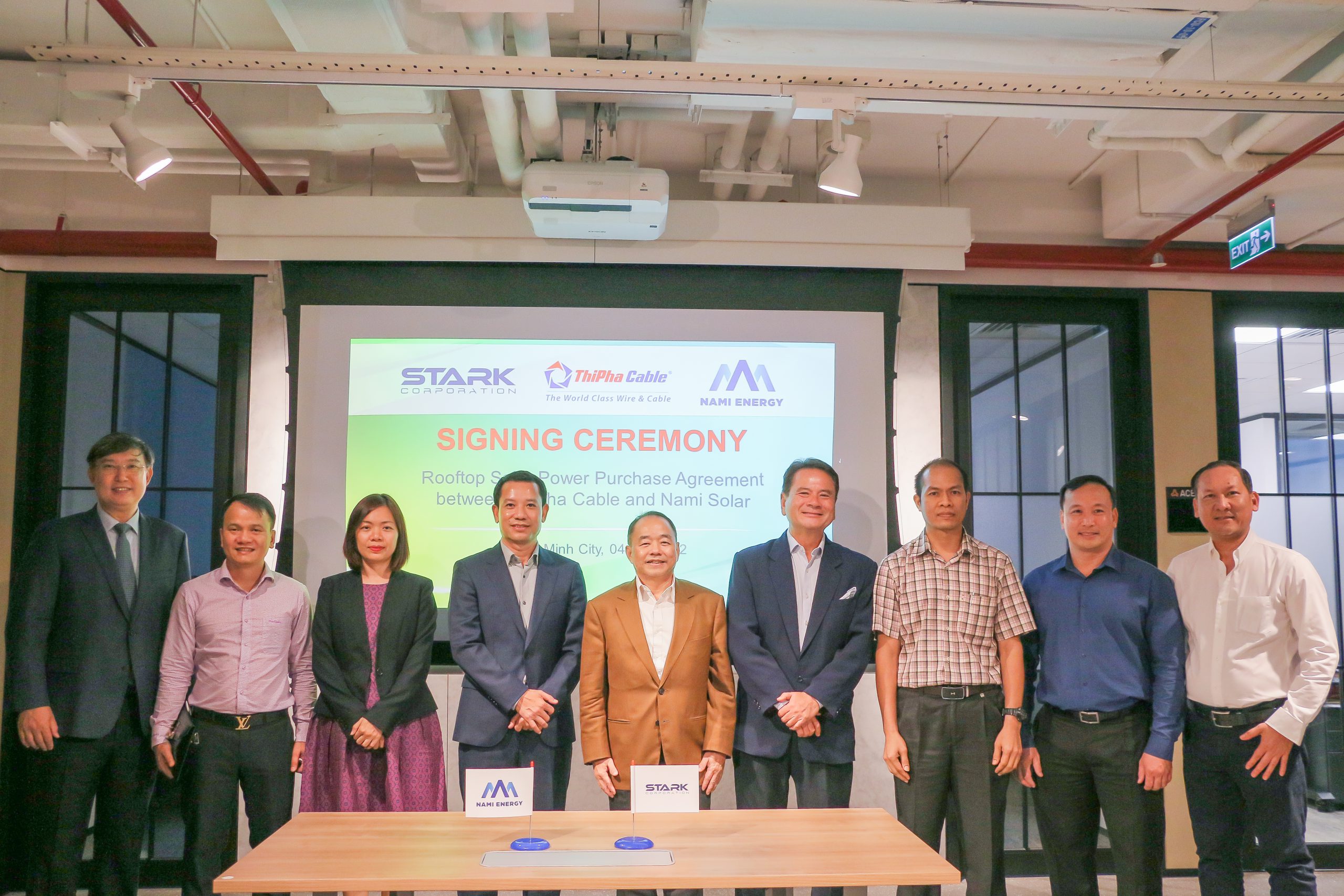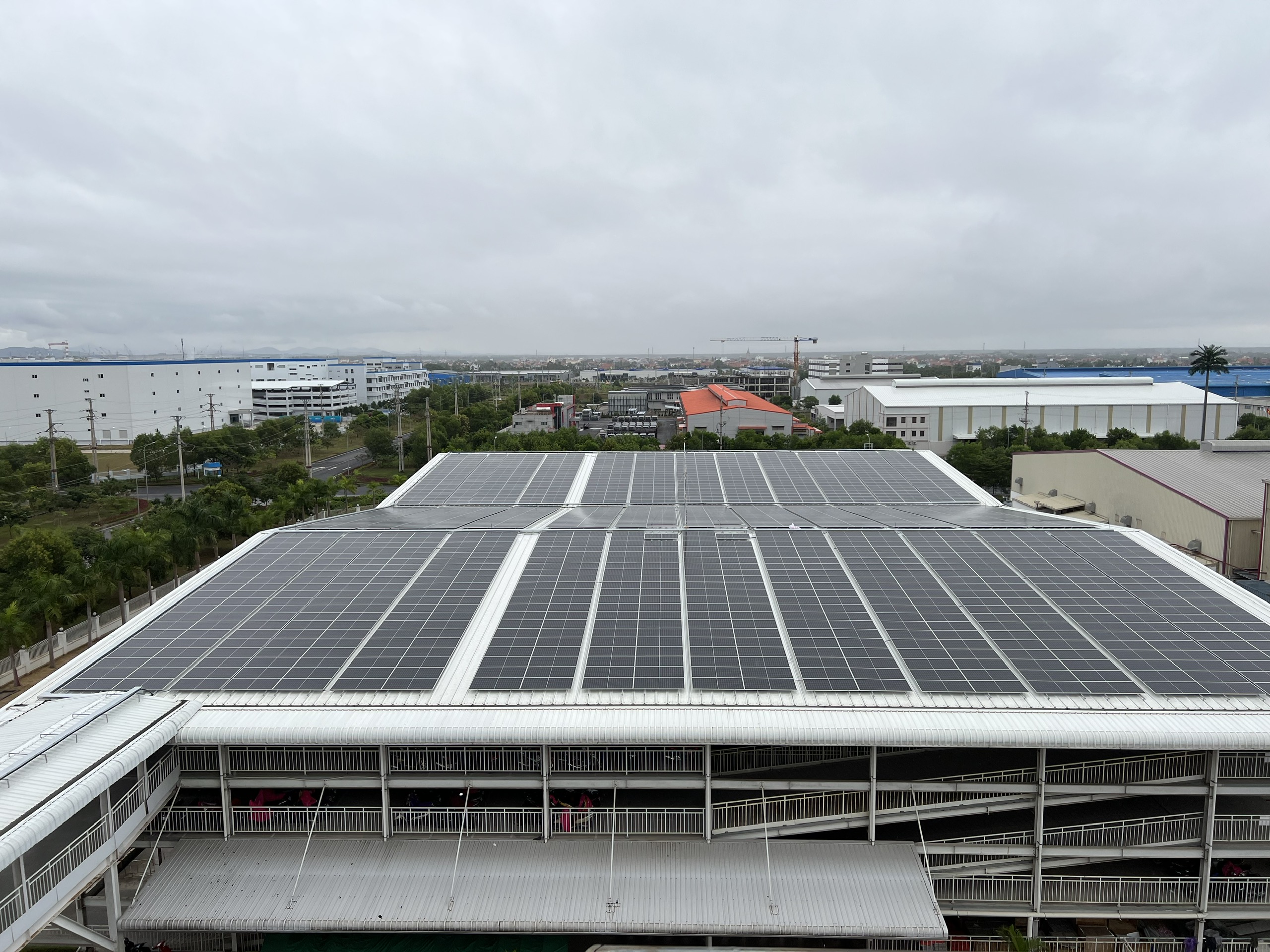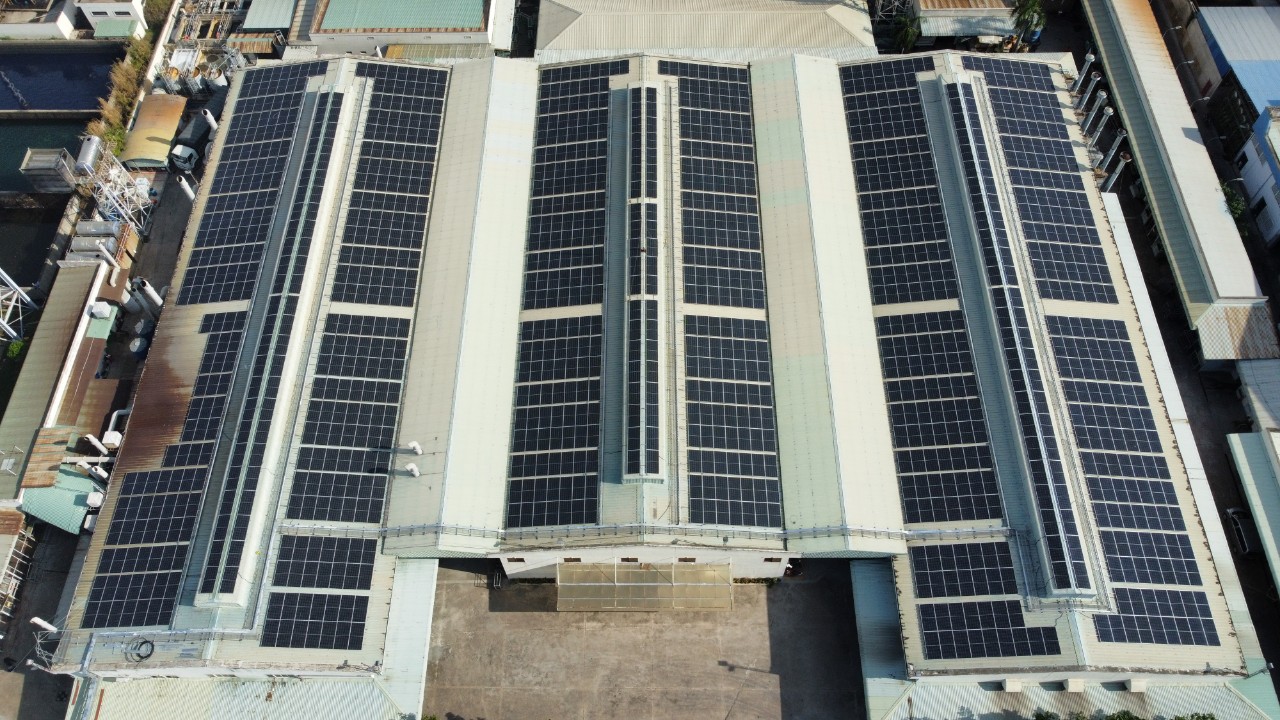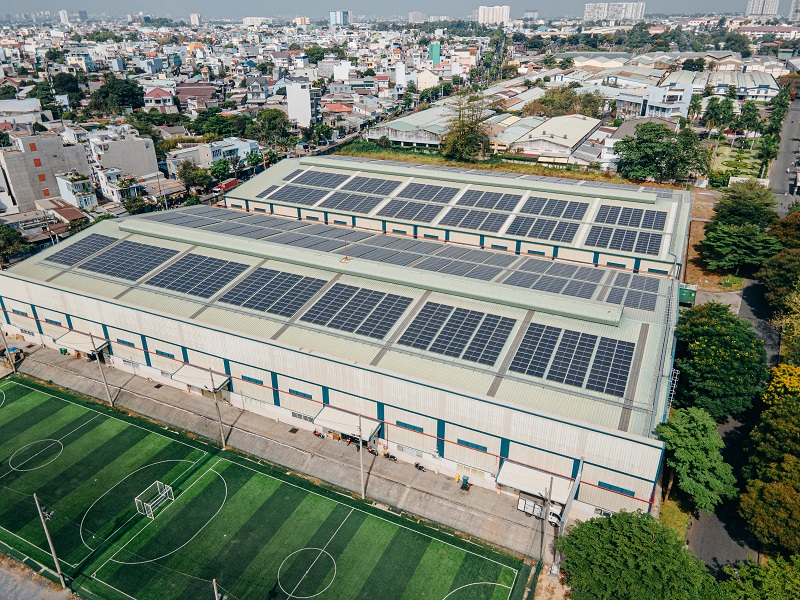Rooftop solar power, an idea whose time has come in Vietnam
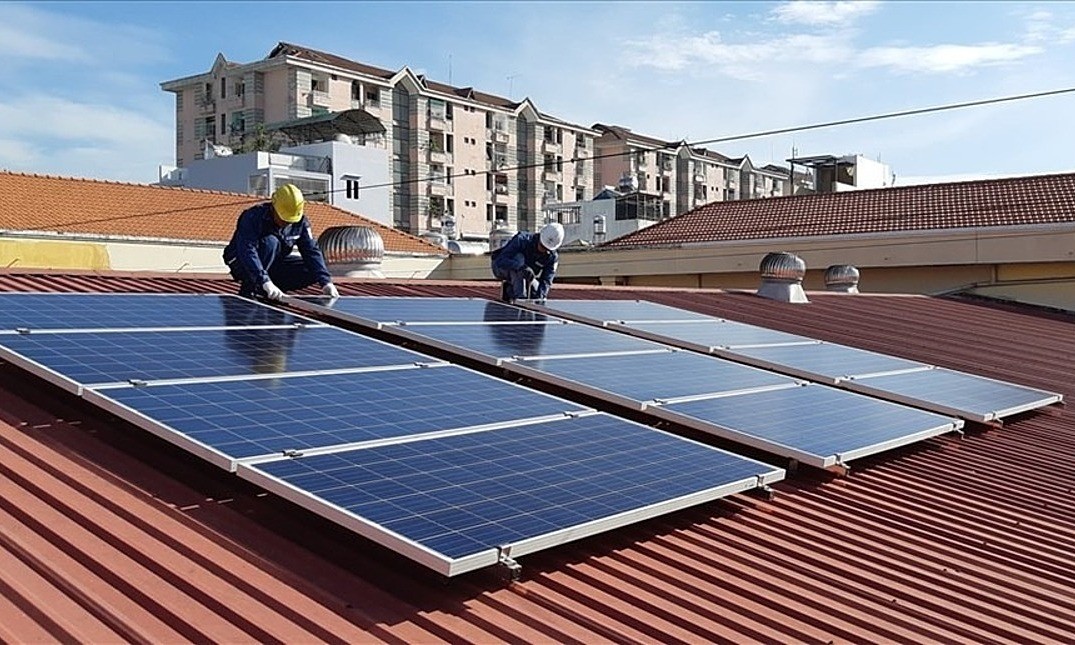
An increasing number of companies are installing rooftop solar systems at their factories to save power costs.
Industrial land developer Sonadezi Corporation recently announced it would begin installing solar panels with a total capacity of 50 MWp at its industrial parks this year.
In June it began installation at two of its parks in the southern province of Ba Ria-Vung Tau.
In Ho Chi Minh City, textile and garment producer Viet Thang is installing 10 MWp of solar panels at its factories.
Dong Nai Port in the namesake province began operating a one MWp solar panel this month, while factory leasing firm Tan Can Can in the southern province of Binh Duong will have its 2.5 MWp rooftop solar system generating power from next month.
These are among the growing number of businesses that have installed rooftop solar panels or plan to as the government seeks to reduce reliance on coal-fired power plants and boost renewables.
Over 17,100 customers have installed solar panels, 3,000 of them businesses, according to national utility Vietnam Electricity (EVN).
Nationally, rooftop solar capacity rose by 82 percent in the first six months of the year to 782 MWp, it said.
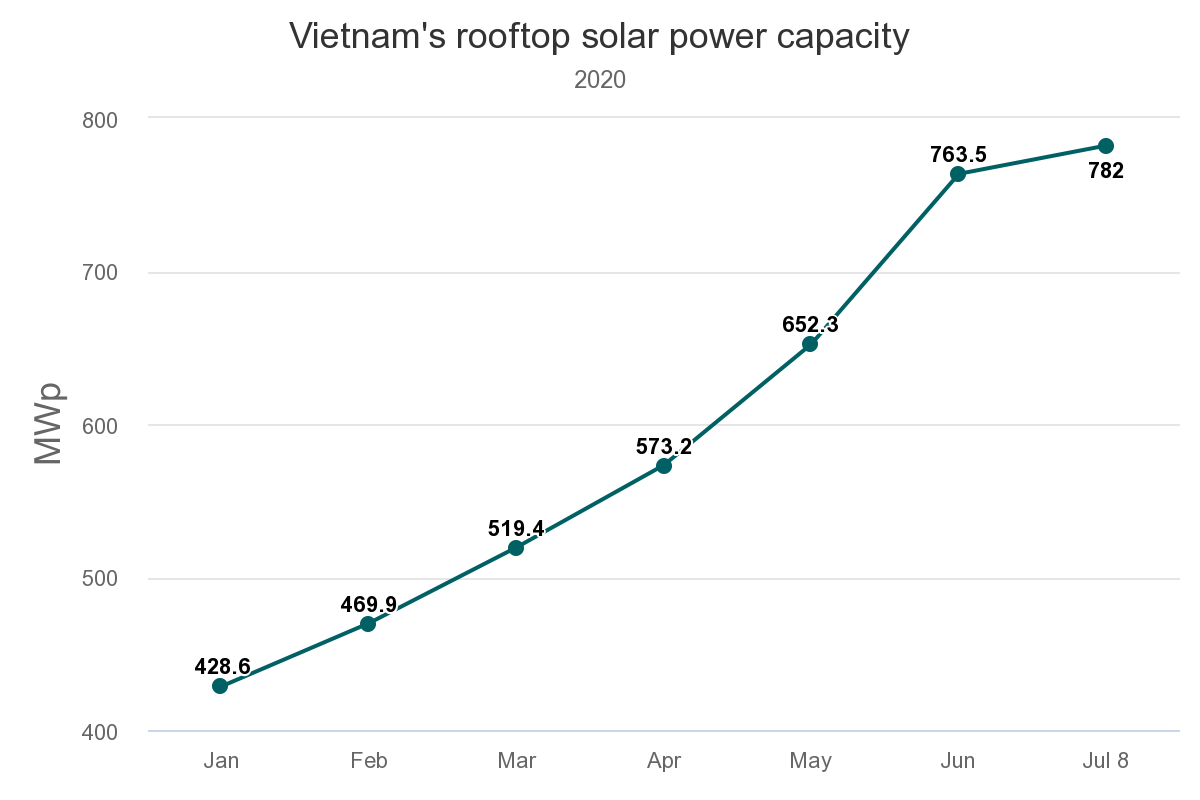
Industry insiders said it is estimated that a company could reduce its monthly electricity bills by 30-40 percent by using solar power.
Some 70-80 percent of rooftop solar power is used for the business’ needs, and the rest could be sold to EVN at a price of 8.38 U.S. cents per kWh.
As this incentive price could be reduced next year, many businesses are scrambling to complete the installation this year.
Another reason is that the cost of installation has dropped by 80 percent from VND60-70 million ($2,600-3,000) in 2013, and more and more companies are providing installation services.
"We also benefit from the lower temperature in the factory thanks to the solar panels on the rooftop," said Nguyen Duc Khiem, chairman of Viet Thang.
Others said using renewable energy is one way they could promote their brands, especially in Europe and the U.S., where customers are interested in green energy.
Luu Hoang Ha, chairman of Nami Solar, said some buyers from the E.U. and the U.S. require Vietnamese textile and footwear producers to meet certain criteria in terms of sustainable energy development.
But some hurdles remain. For instance, authorities have not determined standards for solar power equipment, which means users do not have a reference point for quality.
Prices are up to 50 percent different between companies, while some users have complained about equipment malfunction within three years though solar panels often have a life span of 25 years.
Tran Thanh Hai, deputy CEO of Sonadezi, said there also needs to be regulations on how solar panels should be disposed of at the end of their lifespan to ensure minimum damage to the environment.
Source: VNExpress (Click here for original article)
Nami Energy © 2020. All rights reserved



